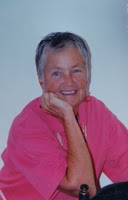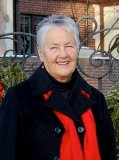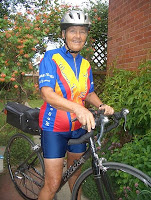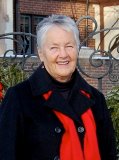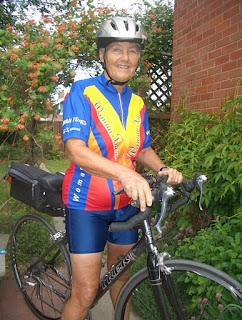The
place of my origin is New Jersey. I spent the first 15 years of my
life in a community called Mountain Lakes. At age 15 my family was
forced by circumstances to leave this lovely place and move to the
deep south to a totally different existence. I have had no ties to
New Jersey since I left there–left no relatives behind, and lost
touch with school chums. But I do have memories and lots of them. I
have not had reason to put them down on paper until now. So I am
happy for today’s topic. Isn’t that what telling your story is
about–recording memories?
I
have no idea what Mt. Lakes is like now. But in the 1930‘s and
1940’s in spite of the Great Depression and the Second World War,
Mt. Lakes was an idyllic place. I did not realize it at the time
since I had never lived anywhere else and had nothing else with which
to compare it.
There
was a mountain there (by Colorado standards, a hill) and two
lakes–the Big Lake and Wildwood Lake. Located about one hour by
rail from New York City, this was a middle class community of
business men, housewives, and their two and one half children. There
was an elementary school and a Jr. and Sr. High school, a couple of
stores down by the depot,a post office, and a gas station.
Otherwise it was strictly a residential community.
Our
home was the perfect place to play and to have adventures. We shared
the end of a cul-de-sac with two other houses. We had huge back
yards and beyond that was the lake. On the other side of our street
Fernwood Place was a woods called the Bird Sanctuary. The cul-de-sac
was at the top of a small hill, so to get to the lake or into the
Bird Sanctuary I always was going down hill.
At
the edge of the lake my father had gardens. Flowers and vegetables.
Some of my happiest memories are of the hours spent “helping” my
Daddy in the garden.
This
is also where my Daddy taught me to split logs. (Charlie McConnell
was not one of the business commuters to NYC. Rather he owned a
lumber mill in nearby Rockaway.) I was a rather puny child, but I
learned that splitting the largest logs had less to do with size and
strength and more to do with technique. Daddy taught me that
technique which I have never forgotten and often have put it to good
use.
Our
neighbors on one side were an elderly couple, the Moores. On the
other side was the Noyes family. Their two older children, boys,
were my age and my brother’s age. The three boys avoided me as
they did most girls, except for when they got it in their heads to
play a game about pulling each other’s pants down. Then they would
come looking for me and I was no where to be found.
Among
the other enlightened activities we did that I remember was to go to
the Moore’s back yard which had quite a steep hill, lie down at the
top and roll all the way down. This sport usually took the form of a
competition. Being the puniest, I usually won. I remember Bobby
Noyes throwing up everything he had in him on the Moore’s lawn at
the end of one of those episodes.
Going
to and from school required a walk of a little over a mile. I would
start out through the bird sanctuary, follow the stream then turn
left at the bottom where the stream met the road. I loved the Bird
Sanctuary. It was a wonderful place to be alone or play with
friends. I do not remember ever being taught anything directly about
caring for the natural environment, but we all seemed to grow up with
an innate sense of respect for the wonders of nature which could
always be observed in the Bird Sanctuary.
I
had a rowboat, my brother had a canoe. It was my job to caulk the
seams of my beloved boat and paint the thing every year. That was a
hard job but I was mighty proud of my boat because it was mine.
I
must have learned to swim early in life because my mother gave me
quite a lot of freedom on the water. I give her credit for this.
She had lost her brother to drowning when he was 11 years old. She
must have had to face fears both rational and otherwise. I do
remember well, though that there were no non swimmers or not even poor
swimmers in that community.
Fishing
was one of my favorite things to do. I would rise at sunrise, go to
the kitchen, take out a piece of uncooked bacon, grab my fishing pole
and down to the dock I would go. This was not a sportsman’s lake
full of wild fish. But there were fish there. Out in the middle and
deep down there were bass. Closer to shore there were perch and sun
fish. I could look down over the edge of the dock and see the
sunfish nests. Perfect circles on the sandy bottom, with depressions
in the middle. I would hang my bacon-baited hook right over the poor
baby’s nests and almost always catch something. They were usually
big enough to keep, so I would take two or three of them (they must
have been the parents) and prepare them for breakfast. I was quite
proud of myself and had no compassion for the poor babies left
parentless. What WAS I thinking. I loved the feeling of
self-sufficiency. Sun fish are pretty tasty too. I think I got the
fishing out of my system. I have never enjoyed fishing in my adult
life.
In
the winter the lake froze over. At least that is my memory of it.
The reality is that in my 15 years there the lake probably froze over
maybe a few times, not every year. But I have fond memories of
skating on that lake. The school was at the opposite end from our
house. Between me and the school were various friends and school
acquaintances. On weekends we would gather out in the middle of the
frozen lake somewhere and play crack the whip. Being small I was
usually put at the end of the line or close to it, and at the crack
of the whip, screaming gleefully, but holding on tight, I was
catapulted across the ice at great speed.
Then
we would go over to Powell Street with our Flexible Flyers. The
street was blocked off for sledding. Up and down, up and down all
day long.
Every
summer my parents would take us to the beach at Cape May in southern
New Jersey. We would stay for about a week. That must be where I
fell in love with the ocean and the surf. I loved to body surf (I
still do). I think today Cape May is a gambling Mecca, but back then
the boardwalk and the beach and the surf were magic to me. The
Jersey shore was paradise.
